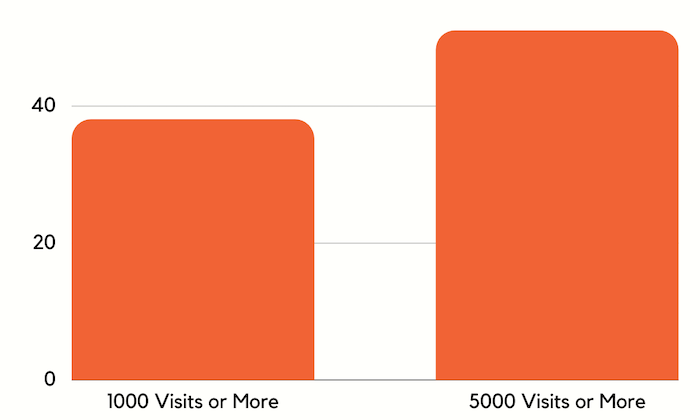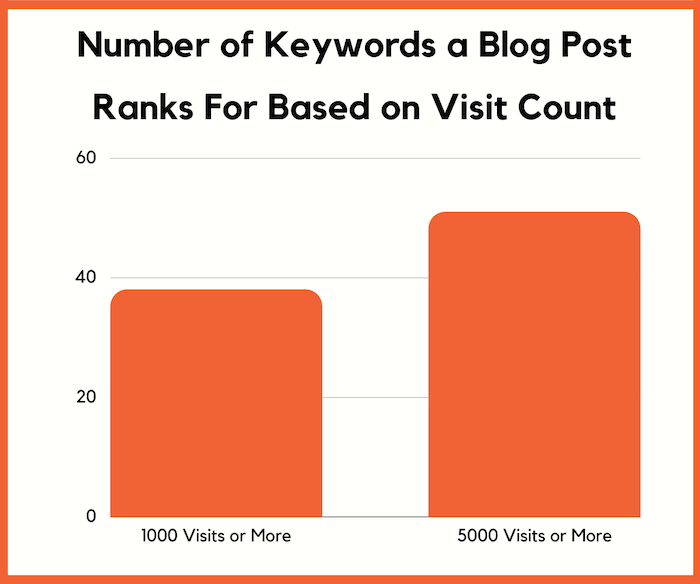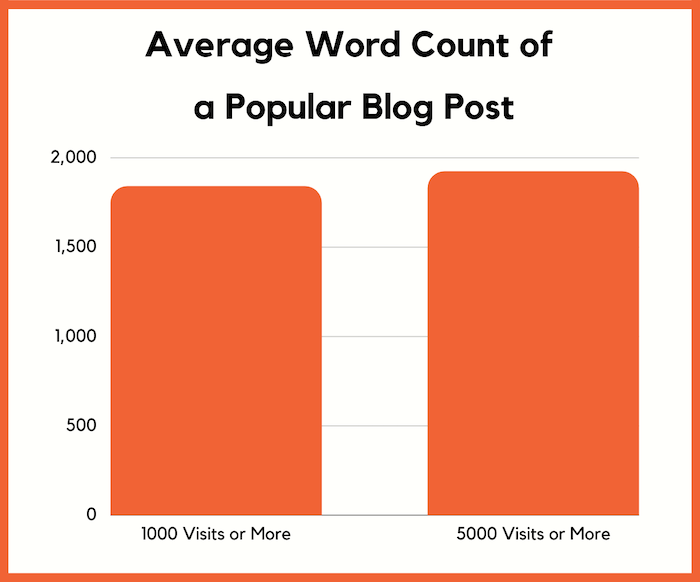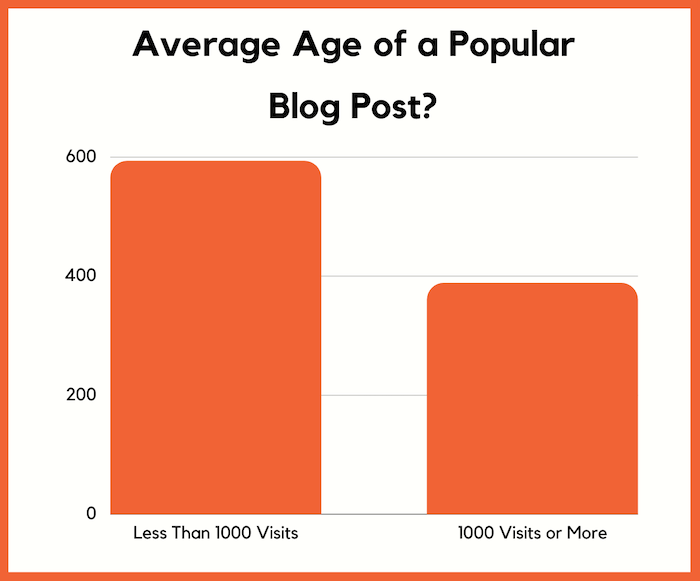Blog Posts With 1000 Visits or More Target 76 Keywords on Average
- April 20, 2021
- Uncategorized

Blogging is a pain.
Not because content is hard to write (worse case you can just hire a writer or agency), but due to the fact that no one can guarantee that your blog post gets read or not.
Just think about it… you spend all this time writing content, but no one can guarantee that it gets seen, shared, or even linked to.
So, I thought it would be fun to analyze popular blog posts and see what common characteristics that they have.
That way you can replicate what they are doing and increase the likelihood that your post gets read.
Now for this study, we deemed a popular blog post as anything that generates at least 1,000 visitors a month from Google organic search (this was based on Ubersuggest data).
We also didn’t exclude any countries and looked at the data from a global level.
Here’s what we learned.
A popular post tends to rank for at least 38 keywords
A big thing in common was that popular blog posts rank for at least 38 keywords.

What’s interesting though is posts that generate at least 5,000 visits a month from Google rank for 51 or more keywords.
But the big difference between posts that generate at least 1,000 visitors versus 5,000 wasn’t the number of keywords that they were targeting, it was more so that they were ranking for keywords that were searched on average 984 times a month.
Now granted they didn’t get 984 clicks for each keyword that they ranked for, as no site really gets all the clicks, and there is no guarantee that they were in the number 1 spot.
When looking at this data we decided to dig in a bit more and we randomly picked 300 blog posts that generate at least 1,000 visits a month from Google to see how many keywords they mentioned on their page that contained at least 50 searches a month.
Can you guess what the number was?
Well, after we removed generic one-word terms that aren’t really considered keywords (such as how I mentioned words like “analyze, month, generate, data” within this post but I am not really targeting those keywords), the number comes out to a staggering 76 keywords.
But wait, how do you come up with 76 keywords for every blog post you write?
Before I break down how you can come up with a laundry list of keywords to include in every blog post you write, keep this in mind…
- You should never stuff keywords in a blog post for the sake of getting SEO traffic. Your post should flow and adding the keywords should feel natural. (If you are hiring a writer, a good writer shouldn’t struggle with this.)
- There are outliers and some blog posts generate a lot of traffic without targeting dozens of keywords within their content.
- You shouldn’t write blog posts just for “Google traffic”. If the content doesn’t provide value to the user, it is going to hurt your website rankings in the long run as you can get hit by Google algorithm update if your site is deemed to have low-quality content.
Now that we got that out of the way, you can head to Ubersuggest and follow the steps in the video below to come up with blog post ideas as well as 76 plus keywords per post.
The average blog post that is popular contains 1839 words
Over the years the SEO game has changed. Generally, the longer your content, the more traffic you can get. But there are a lot of edge cases to that rule.
And Google doesn’t really care about word count these days as much as they do for user experience.
See, a user doesn’t really care if a blog post is short or long, they just want to be satisfied with what they have just read.
Nonetheless, we looked at the word count to see what the average post length was for a popular post.

What’s interesting is that posts that generated over 5,000 visitors a month on average weren’t that much longer than posts that generated 1,000 visitors.
The biggest difference was they included more popular keywords within their content. They didn’t necessarily rank for each of those terms, but this gives a post more opportunity to potentially rank and be found.
As I mentioned though, there are always exceptions to the rule. For example, there are popular topics like “how to tie a tie” and you don’t really need tons of words to explain how to tie a tie. You more so need images or even video.
Blog posts that are popular are somewhat new
When we looked at every popular blog in our database, we noticed that a lot of sites didn’t include a publish date or an updated date (updated date is used for content that was originally published years ago but was more recently updated).
But for the posts that did contain a date, whether it was the publication date or when the content was updated, we did notice something interesting.

Content that generates 1,000 visitors or more a month on average tends to be 388 days old.
And content that generates less than 1,000 visitors tends to be 593 days old.
This doesn’t mean that Google doesn’t want to rank new, fresh content as in both categories there was fresh, new content that did generate traffic. But a lot of the ranking blog posts were a bit old (but not too old).
Again, keep in mind there are always exceptions to the rule. Going back to the how to tie a tie example, even if that article was 3 years old, it probably would still be relevant as much hasn’t changed when it comes to ties.
But with over 1 billion blogs on the web, it seems like Google prefers newish content over outdated content.
If you have older content, don’t worry, you can always update it to ensure that it continually gets more traffic.
The way you would do this is by following these steps:
It’s so effective that I have a team of people who just update my old content.
Conclusion
Whether you like it or not, if you are going to write content you should do keyword research first.
Picking the right keywords versus the wrong ones can mean that your content doesn’t get traffic or gets thousands of visitors a month.
Now of course there are other elements to your SEO like links and on-page SEO, but for this analysis, we wanted to focus on the characteristics (ones that you can easily control) that make a popular post.
Out of curiosity, do you do keyword research before you write content?
About us and this blog
We are a digital marketing company with a focus on helping our customers achieve great results across several key areas.
Request a free quote
We offer professional SEO services that help websites increase their organic search score drastically in order to compete for the highest rankings even when it comes to highly competitive keywords.
Subscribe to our newsletter!
More from our blog
See all postsRecent Posts
- Web Hosting September 26, 2023
- Affiliate Management September 26, 2023
- Online Presence Analysis September 26, 2023

